UK Charity Regulator Dismisses Trustees Of Iran-Affiliated Islamic Center
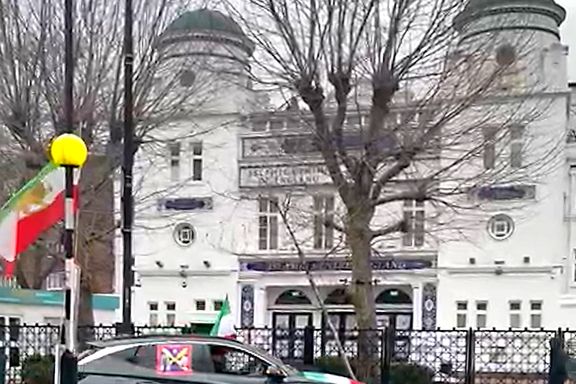
The UK’s Charity Commission has removed trustees from the board of the Islamic Center of England for its links to Iran.

The UK’s Charity Commission has removed trustees from the board of the Islamic Center of England for its links to Iran.
The UK's security minister Tom Tugendhat welcomed the decision by the regulator, saying its leadership was appointed by the head of the Islamic Republic of Iran. "It is reported to have celebrated the lives of people like Gen Soleimani, the head of the IRGC, who [did] so much to spread hatred, death and destruction, not just in the Middle East, but around the world,” he said.
Last week, a temporary manager was appointed after the charity was inspected by the regulator. There were serious concerns about the charity's governance, with the organization previously being warned.
Tugendhat added: “In recent months, I've warned often about the threat that Iran poses to us here in the United Kingdom. The actions of the Iranian Revolutionary Guard Corps and its agents have put lives in danger in our own country.”
The Charity Commission ruled that trustees violated their legal duties and responsibilities, failing to protect the charity's assets.
It was revealed in 2021 that the Islamic Centre of England in London run by the UK representative of Ayatollah Ali Khamenei, had received more than £100,000 in coronavirus aid from the British government’s coronavirus job retention scheme.
Meanwhile, a Muslim group in Germany, Secular Islam Association, urged authorities on Wednesday to immediately ban Iran’s Islamic Center of Hamburg and shut down its Imam Ali Mosque.
The Islamic Republic, controlled by Khamenei, does not allow the presence of international institutions or non-governmental organizations in Iran, but it directly and indirectly has a network of associations and offices around the world, including Western countries.
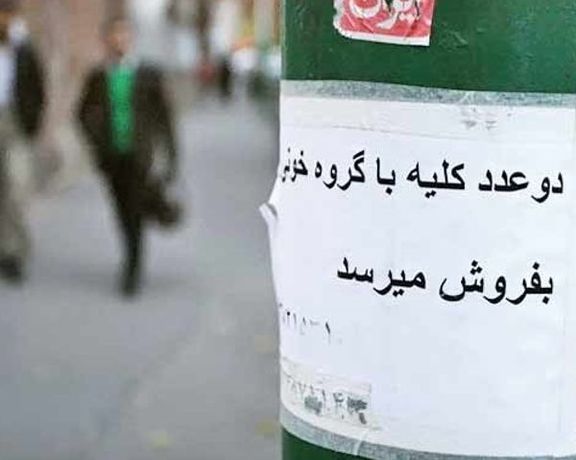
An Iranian newspaper has been prosecuted for publishing a report on the rising illegal organ trade.
An investigation in Jahan-e-Sanat revealed that the illegal sale of organs is becoming increasingly common in Iran amidst rising poverty, claiming the government was turning a blind eye to the problem.
The newspaper claimed middlemen operating online send the prospective donors to neighboring countries such as the United Arab Emirates, Turkey, and Iraq to sell body parts for $7,000 to $15,000, with most donors coming from impoverished backgrounds. In some cases, people have even been forced to sell organs to pay for medical bills or support their families.
The Judiciary announced Tuesday that the daily has been charged for “publishing false information without providing evidence".
While Iran has a domestic system for organ sales, it is a long and expensive process, prohibitive to most ordinary Iranians. The trafficking of organs abroad is not regulated and poses huge risks to patients, offering no safeguards for the many who are vulnerable and desperate.
The organ trafficking industry has been estimated to be worth millions of dollars, with organs being sold to wealthy individuals. The organs are usually obtained through coercion or deception, with some being promised money and then never receiving it once the organ has been removed.
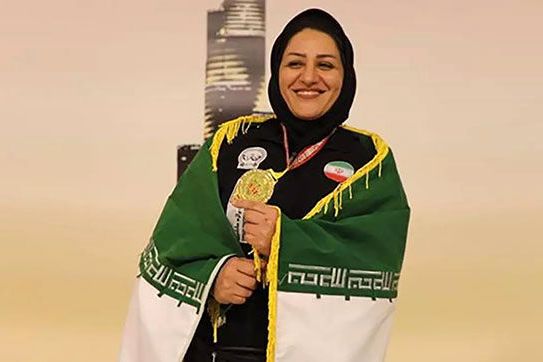
An Iranian female arm wrestler says a government official banned the sport for some period of time because the wrist and a part of the elbow could be seen during matches.
Roya Mahboodi, an Asian Women’s Arm-Wrestling champion told Etemad daily on Wednesday that “We were following up on it so much, but they did not let practice. They did not even let us practice in the gym.”
“I was experiencing a hard time. I used to get my [portable] table, go to the park and practice with the guys in very difficult conditions. Unfortunately, the hijab rules in our country created this situation at one point."
The female athlete pointed out that the elbow must be visible, because it blocks the referee's view in the competitions, but the authorities of the Islamic Republic were picking on the athletes a lot.
During the 21st Asian Arm Wrestling Championships, Mehboodi won a gold medal in the 90kg senior women left hand.
This year's Asian Arm Wrestling Championship was held in the United Arab Emirates with over 500 athletes competing from 16 countries.
This event was organized by the Emirates Bodybuilding and Fitness Federation (EBBF) under the auspices of the Asian Arm Wrestling Federation (AAF) and came to an end on May 3.
During the “Woman, Freedom, Life” protests the female athletes who defied the hijab rules received great support and even were called heroes by people but endured pressure from the authorities.
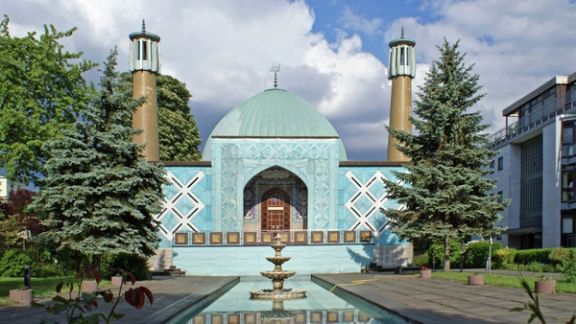
A Muslim group in Germany, Secular Islam Association, has urged authorities to immediately ban Iran’s Islamic Center of Hamburg and shut down its Imam Ali Mosque.
In a letter to Germany’s Federal Interior Minister Nancy Faeser last week seen by the German daily Die Welt, the head of the association, Necla (Nejla) Kelek, also demanded the government to stop cooperation with a major group, the Central Council of Muslims (ZMD), at least as long as it cooperates with the Islamic Center of Hamburg, known by its German abbreviation IZH for Islamische Zentrum Hamburg.
In her letter, Kelek referred to IZH’s connections with the Hezbollah of Lebanon and the activities of Soleiman Mousavifar, the former deputy head of IZH, who was expelled from Germany along with his family in June 2022 for his support for militant Shiite groups and organizations
The Hamburg Administrative Court on April 27 held its first hearing in a lawsuit brought by IZH against the city of Hamburg for being classified as an extremist organization by the Office for the Protection of the Constitution, a security organization known as Hamburger Verfassungsschutz (HV) in German.
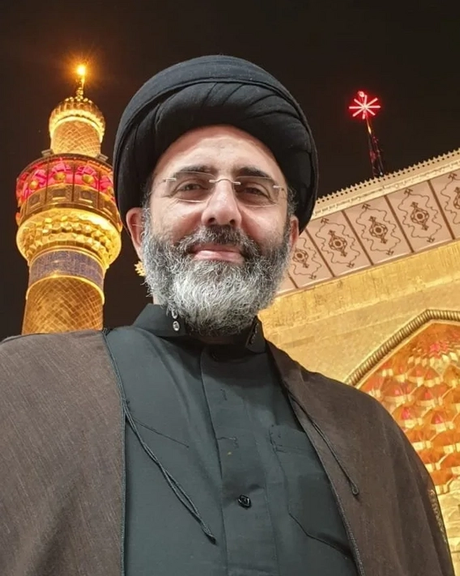
HV has been monitoring IZH since 1993 due to its connections with groups such as the Lebanese Hezbollah which is also banned in Germany and for ties to the Iranian regime.
Philipp Woldin, the managing editor of Die Welt Hamburg, alleged in an article in 2021 that the IZH is Iran’s most “important propaganda center" in Europe, and it sends busloads of pro-Iranian and pro-Hezbollah activists to Berlin to participate in the annual al-Quds rallies.
IZH runs one of the oldest mosques in Germany and Europe, known as the Blue Mosque on the Alster, which has been administered by Iran’s government since the Islamic Revolution of 1979.
Calling IZH “the [Iranian] regime’s most important spy nest in Germany,” Omid Nouripour of Iranian descent and leader of Germany’s Green Party, has also repeatedly called for its closure.
The Hamburg Shura Council, an association of Muslim organizations that represents around 40 mosque communities and other Islamic institutions in the city, in January 2022 removed the Hamburg Islamic Center from its board of directors for supporting IRGC’s Quds Force former commander Qasem Soleimani and allegations that the center is Iran’s “long terrorist arm” in Europe after German intelligence confirmed connections to Iran’s leader Ali Khamenei as well as Hezbollah, both designated as terrorist entities by the US and EU.
The Islamic Centre of England in London's Maida Vale is another Iranian regime affiliated religious organization in Europe undergoing a statutory inquiry by Britain’s Charity Commission over "serious governance concerns" and failure to comply with previous rulings.
Britain’s Security Minister Tom Tugendhat told the Times in March that the government was “pulling together” to deal with “this vile threat that’s taken over a country and is now threatening ours.”
The British minister had previously warned that "interference, threat and influence" by the Islamic Republic of Iran on British soil has increased alarmingly.
“Sadly, the Islamic Centre for England is not alone and the work of the IRGC is not limited to those Iranian proxy organizations.”
It was revealed in 2021 that the Islamic Centre of England in London run by the UK representative of Ayatollah Ali Khamenei, had received more than £100,000 in coronavirus aid from the British government’s coronavirus job retention scheme.
The Islamic Republic, controlled by Khamenei, does not allow the presence of international institutions or non-governmental organizations in Iran, but it directly and indirectly has a network of associations and offices around the world, including Western countries.
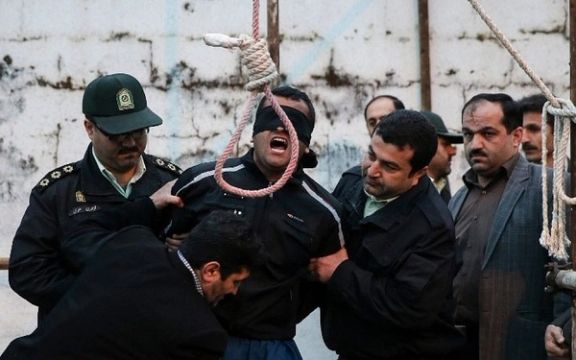
In the early hours of Wednesday morning, families of prisoners sentenced to death gathered outside Iran’s largest prison hoping for mercy by the regime but by sunrise their loved ones were hanged.
But in a bitter twist of fate, the prisoners’ families were violently dispersed by security forces using teargas, batons and warning shots, with no chance to say goodbye, or see their loved ones for one final word.
"A family member of one of the prisoners was taken to the hospital after being beaten by the forces and he is in critical condition,” a human rights group cited an unnamed source as saying, the brutal scenes compounding the pain of the families pleading for amnesty for their loved ones.
Three inmates were executed at Ghezel Hesar prison in the city of Karaj while another four were hanged at Rajai Shahr Prison also in Karaj. The charges for the executed prisoners were announced as drug trafficking and rape and have been part of a spree of killings by the Islamic Republic in recent weeks.
The number of executions started to rise after President Ebrahim Raisi – the former head of the country’s notorious judiciary -- took office in August 2021 but the recent exponential spike has triggered concern at home and abroad.
The United Nations said Tuesday that Iran has executed 209 people so far this year, calling the record "abominable". The Annual Report on the Death Penalty in Iran 2021, published by Oslo-based Iran Human Rights (IHRNGO) and Paris-based Ensemble Contre la Peine de Mort or ECPM (Together Against the Death Penalty), said at least 333 people were executed in 2021, about two thirds of whom were during Raisi’s administration. This was up from 267 in 2020.
In 2022, executions rose by about 80 percent, with at least 582 people put to death. Several right groups such as IHRNGO, ECPM, and the US-based Human Rights Activists News Agency (HRANA) described the rise as the authorities’ tactic to "spread fear" among protesters.
A glance at the HRANA’s 2022 reports on Iran's rights violations clearly shows a sharp upward trend in the reported cases since mid-September when the 22-year-old Kurdish woman Mahsa (Jina) Amini died in the custody of the so-called “morality police,” following which protests swept across the country.
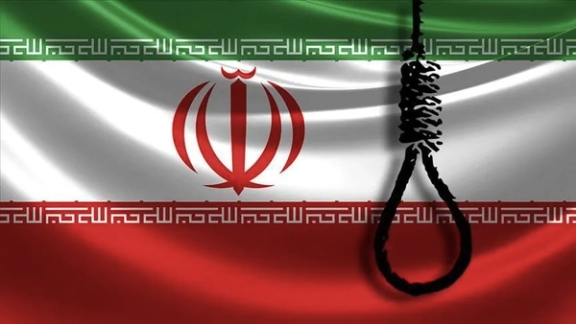
Iranian social media users have launched a twitter campaign calling on the regime to stop the executions, particularly of prisoners of conscience. The Persian translation of the hashtag “we are all together” had been retweeted about 300,000 times by mid-Wednesday.
The global community has also been vocal about the exponential rise in the number of executions, with many officials condemning the acts and calling on the regime to halt the hangings.
Two Iranians jailed for insulting religious entities were hanged on Monday, strengthening speculation that the killing spree aims to intimidate people against further protests. Moreover, Iran executed Iranian-Swedish political activist and former leader of the Arab Struggle Movement for the Liberation of Ahwaz (ASMLA) Habib Chaab (Asyud) on Saturday for “corruption on earth”.
Speaking to Iran International, the Canadian foreign ministry called the executions of the three activists hanged in the past few days “appalling,” urging the Islamic Republic to abolish capital punishment.
Australian Senator Jordon Steele-John, a political sponsor of Majid Kazemi -- among four men accused of being involved in the deaths of three IRGC’s Basij militia members during anti-government protests in the city of Isfahan – called on the Federal Government and Australian Foreign Minister Penny Wong “to have an urgent meeting with her Iranian counterpart to do all they can to prevent the execution of Majid, which could happen at any moment”.
On Tuesday, the sentiments were echoed by the UN High Commissioner for Human Rights, Volker Türk. ”On average so far this year, over 10 people are put to death each week in Iran, making it one of the world's highest executors,” she said. And as numbers continue to climb, it looks unlikely to stop any time soon, with the regime doing all it can to spread fear among its people.
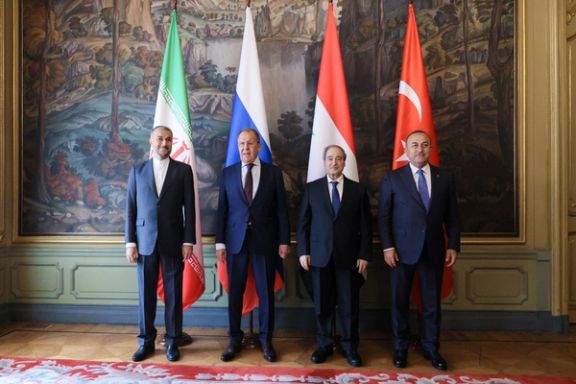
Foreign ministers for Turkey, Syria, Russia and Iran met on Wednesday in Moscow, on rebuilding ties between Ankara and Damascus after years of animosity during Syria's civil war.
Turkish Foreign Minister Mevlut Cavusoglu said in a tweet that he had stressed the need for "cooperation in the fight against terrorism and working together to establish the basis for the return of Syrians" during the meeting.
NATO member Turkey has backed political and armed opposition to Syrian President Bashar al-Assad during the 12-year civil war and sent its own troops into the country's north. It is also hosting more than 3.5 million refugees from its neighbour.
Cavusoglu said "taking the political process in Syria forward and protection of Syria's territorial integrity" were the other issues discussed.
Syria's foreign minister Faisal Mekdad was quoted as saying by Syrian state news agency SANA that "despite all the negatives of the past years, there is an opportunity" for Damascus and Ankara to work together.
But the priority for Syria was ending the illegal presence of all foreign militaries including Turkey's, Mekdad said.
Syria's northwest includes a sliver of territory held by rival militias, including hardline armed groups and jihadist factions backed by Turkey.
"Without progress in this matter, we will remain stagnant and will not reach any real results," Mekdad was quoted as saying.
Russia's foreign ministry said in a statement there had been a "positive and constructive atmosphere" and that the countries' deputy foreign ministers would be tasked with preparing a roadmap to advance Syria-Turkey ties.
Report by Reuters